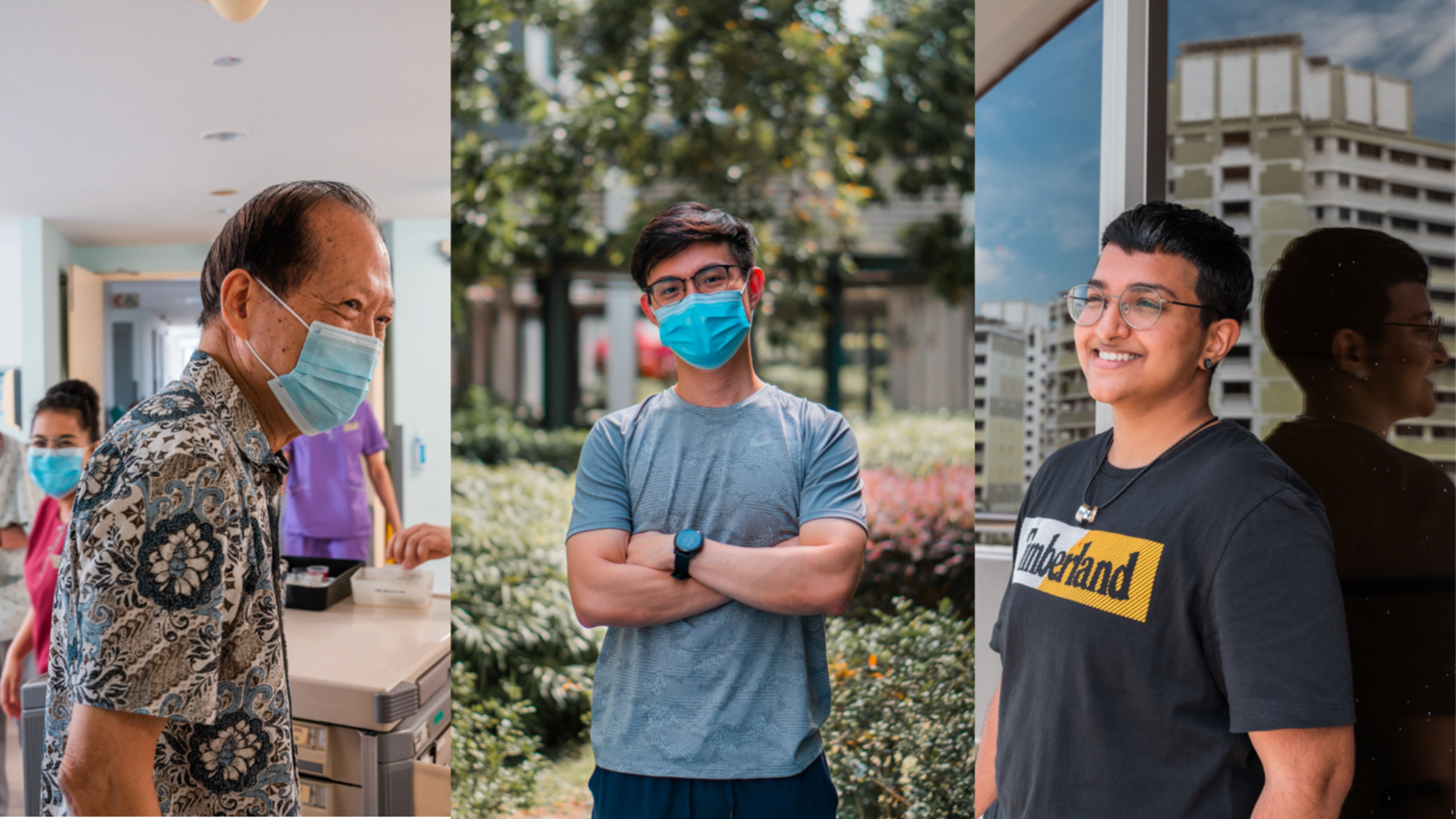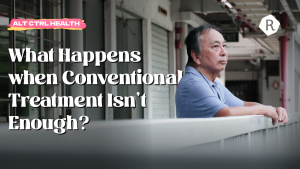All photos by Chan Hui Wen.
What do you think of when you hear the word ‘care’?
Chances are, for most of us, care wears a female face and speaks in soft, soothing tones. Quite possibly, care is a mother with children of her own; someone used to late nights and early mornings, ever ready with tissues and a smile.
You wouldn’t be wrong—all those things are true. But care also comes in countless other forms and wears many other faces, some wholly different from what you’d expect.
Sometimes, care is male. Maybe they used to work in tech. Often, care doesn’t work in a hospital, even though they answer to the title of ‘nurse’. Or perhaps care works with seniors, although they grew up without grandparents, and never called anyone Ah Ma till they were in their 20s.
In some cases, care looks like karaoke sessions and funny WhatsApp videos. Sometimes, they have the energy of a National Day Parade emcee. And often, care feels frustrated and discouraged, until they remember what they set out to do.
In most cases, care wanted more than a job that paid the bills; they sought a calling that gave their days meaning. And almost all the time, care didn’t think they had it in them until they gave it a try.
We spoke with three Singaporeans working in the Community Care sector about their unconventional journeys into the industry, what they’ve learned, and what care means to them, as they attend to the changing and varied needs of seniors in our rapidly ageing society.
From cybersecurity to community care staff: Foo Chang Yuh, 32
Supervisor at St Luke’s ElderCare Sumang Centre
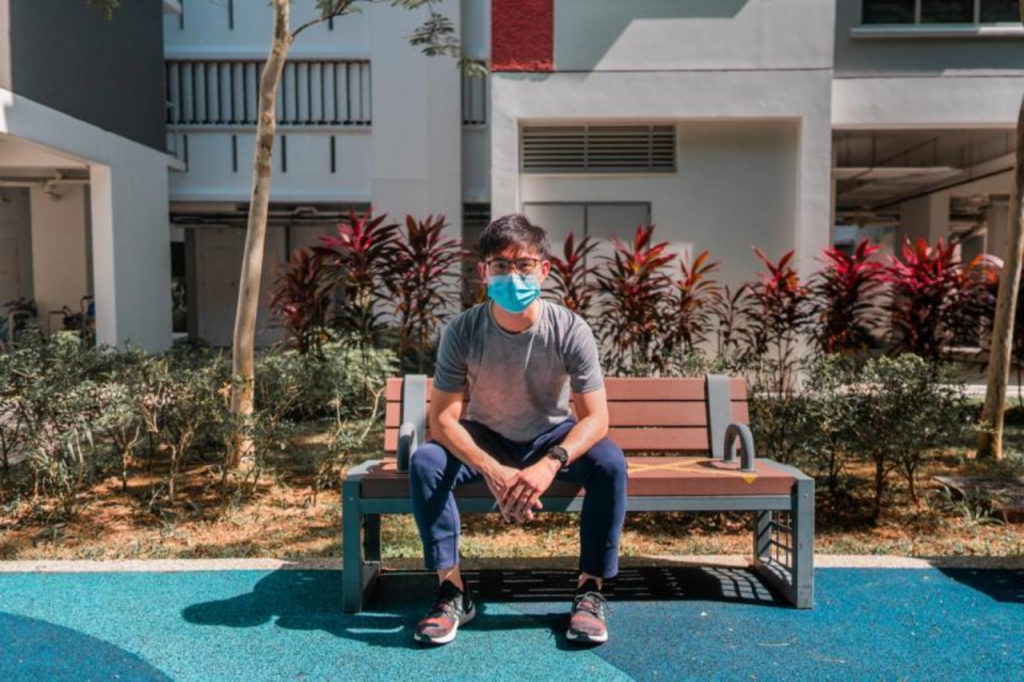
I don’t have a typical nursing background. In fact, I didn’t have a nursing background at all.
I studied Infocomm in a polytechnic, and then did Media Engineering in university. My first job after graduating was as a cybersecurity analyst for a Japanese telco.
I liked the job a lot. It was a small company, and I got to explore a lot and travel around the region doing sales. It was fun at first, but after a while, it began to get tiring. I was getting married, and I didn’t want to be on the move so much. And even though I enjoyed my work, I still felt there was something missing at the end of the day. I could keep going, but I didn’t feel real happiness in what I was doing.
I decided to take a break and try to look for something meaningful. At this point, I bumped into a friend who was working in the eldercare sector, and he said, eh, why don’t you come give it a try?
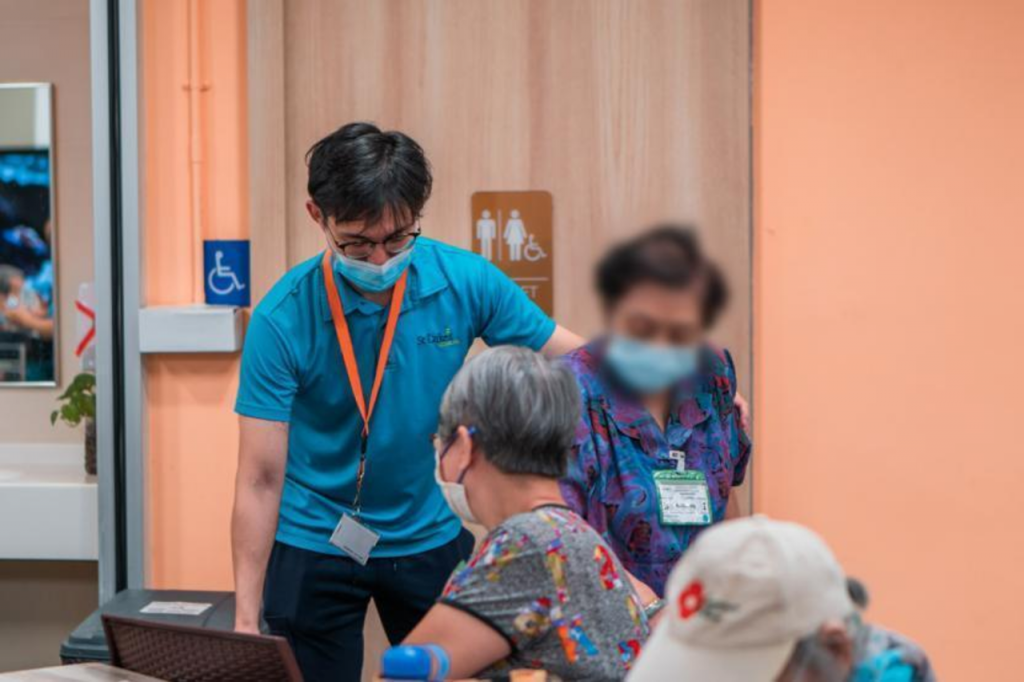
So that was how it started. Everything just coincided, whereby I wanted to take a break, to try something different, to find a job that was meaningful. And somehow, everything just fell into place.
I started off as a volunteer at St Luke’s ElderCare, and my expectations … to be honest, I thought, OK, seniors, I guess they’ll be kind of passive and stuff. But two days in, it turned out to be an eye-opening experience.
I learned that our seniors can be great fun to be with—we have this saying in Chinese, lao wan tong (old imp). It’s true they can be stubborn, and it’s not easy to get to know them and their personalities and habits, but when you truly connect with them, you see the joy on their faces. Even a simple greeting in the morning makes a difference.
At the end of each volunteer session, they would ask, “When are you coming again?” It made me feel like, wow, I made some impact on their lives, that they liked having me around. I realised I could find that joy every day, and with that, I decided to make the career switch.

St Luke’s ElderCare operates 23 senior care centres islandwide, so for some seniors, it’s like a second home. Before COVID, we would play games with them, like mini basketball, bowling, and karaoke, even gambling simulations (without real money), which they like. They even play with Nerf guns—but shooting targets of course, not each other! We also provide day rehabilitative services, like physiotherapy and gait training, to help with their mobility.
The centre closed during circuit breaker, so we didn’t get to see the seniors for many weeks. We were worried about how they and their families would cope, especially those with dementia—we didn’t want them to forget us.
While watching YouTube one day, I saw a lot of people were doing vlogs, and it struck me that maybe I could use those to engage with the seniors during this time. I took little videos of my day-to-day-life, like while jogging in the park near my house or buying groceries, and sent them to the seniors’ children to show their parents. Little things like, Ah Gong, Ah Ma, this is my block, look at these cucumbers I’m buying to cook dinner. We got really good feedback, and it was fun for us to try something different too.
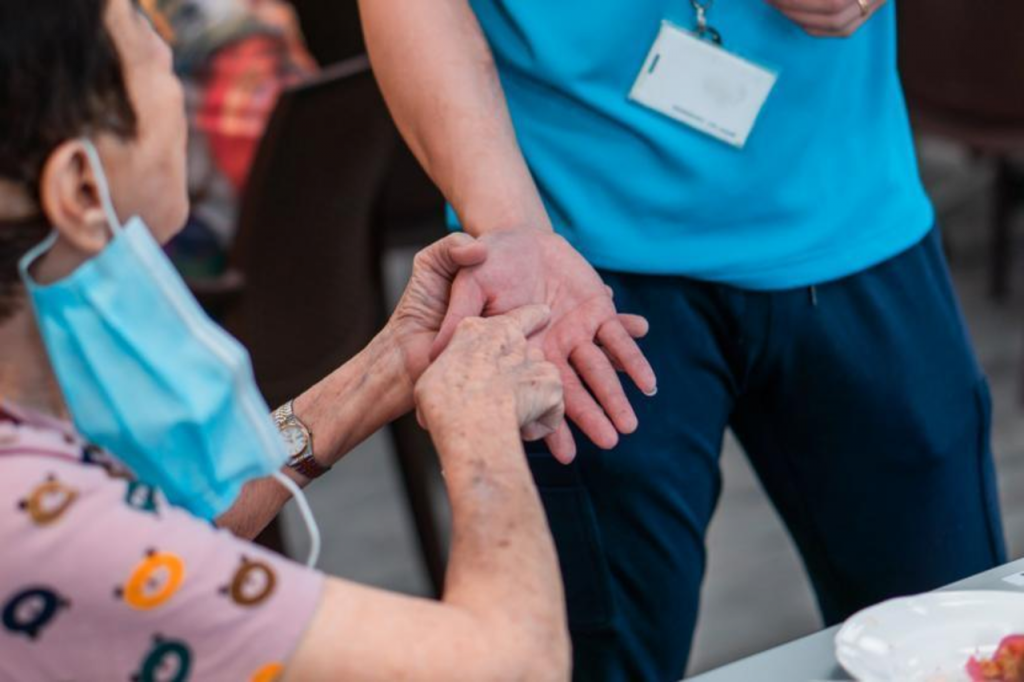
At the end of the day, this job is all about the human touch. I don’t come in here to sit down at my computer and just do my own thing. In my old job, I met a lot of businesspeople and IT professionals, but it was mostly workplace chatter.
Here, you ask about people’s interests, what they did on the weekend. You get to know their lives and their families. And although it’s a growing sector, it’s still quite new, and there’s a lot to learn—I never thought I would go back to school, but I’ve just started a Masters in Applied Gerontology at NTU.
It’s tough work, but every day is different, and the satisfaction it brings is something that money can’t buy. I’ve never regretted making the switch.
The resident hairdresser: Smitha Pillai, 27
Enrolled Nurse at NTUC Health Nursing Home (Jurong West); currently studying for a Nursing diploma at Ngee Ann Polytechnic
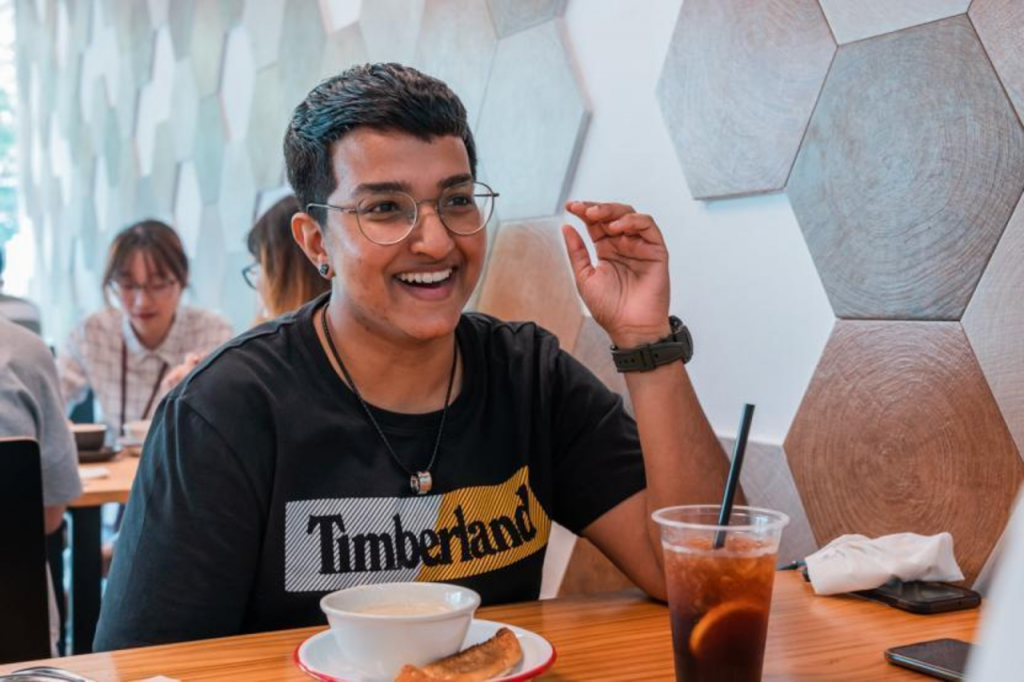
When you ask people why they became a nurse, you might get a lot of cliche answers like, “Oh, nursing has always been my passion”. To be honest, I don’t think this is true for many people. The reality is often very different from your expectations.
I’ve been in nursing for nine years, although I didn’t start off in Community Care. I volunteered with some seniors’ befrienders’ groups when I was in ITE, and then worked in NUH as an acute care nurse for four years. While there were quite a lot of older patients there, I wasn’t tasked with looking after them directly—so in a way, I had no idea what I was in for! But there’s a certain kind of joy you get from interacting with seniors: when you see an old auntie smile at you, it’s so genuine. That’s what motivated me to make a switch.

I don’t regret it, but what you hear about the challenges of the job is true. It can be backbreaking, sweaty work, being on your feet for hours, carrying, cleaning, lifting residents. And it can be emotionally demanding too. I would be lying if I said I didn’t burn out a couple of times.
There was one resident who was really difficult. He would splatter Milo and porridge everywhere and curse at the staff. At first, I wanted to talk back to him too. But I knew there was no use getting angry, so I figured, why not approach it differently?
I decided to be upfront. Speaking to him in my broken Malay, I said, You don’t seem happy, because you’re always angry with the nurses. Whenever we see each other, we’re not smiling. Isn’t it better if we try to change this?
And he was surprisingly receptive, maybe because he felt someone was trying to understand where he came from. I found out that he used to be a firefighter, what people would perceive as a strong man, until he had a stroke. And he wasn’t even that old, in his 50s or 60s. Acting out was his way of trying to regain control.
That’s one thing I’ve learnt from this job: it’s really broadened my mind to understanding people’s motivations and behaviours.
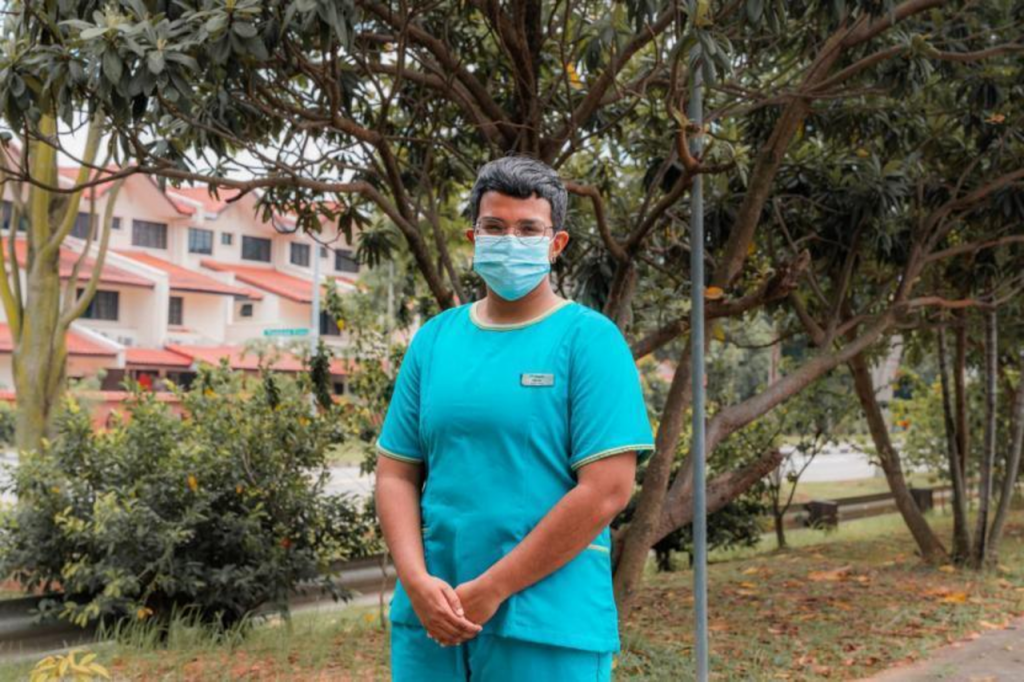
Another thing I got into was giving residents haircuts. We had a resident who was quadriplegic—she could still communicate with us, but she was unable to move her arms and legs, only her head. I noticed that her fringe was getting long, and she kept shaking her head, trying to flick it out of her eyes.
Something clicked for me in that moment. If it was me I could just brush it away, but she couldn’t do anything about it, and she looked so uncomfortable.
I ended up staying back after my shift and giving her a haircut. It was pretty emotional because she hadn’t seen herself properly in the mirror for years. I used my phone to show her when I was finished, and I complimented her a bit, like wah, Auntie so pretty. She replied in Mandarin, Really ah? Pretty? I long time never see myself.
I felt a bit sad when I heard that. Even though they’re old, they want to feel good about themselves. I mean, who doesn’t want that?
What’s most important is to put yourself in their shoes. Once you start doing that, you realise their frustrations and it’s easier to relate to them. It becomes easier to be patient. That’s what I try to do, and it’s gotten me this far. If it makes them smile, you feel happy going back to work, too.
“They call me Papa”: Tang Yip Cheong, 80
Principal Staff Nurse at Bright Hill Evergreen Home
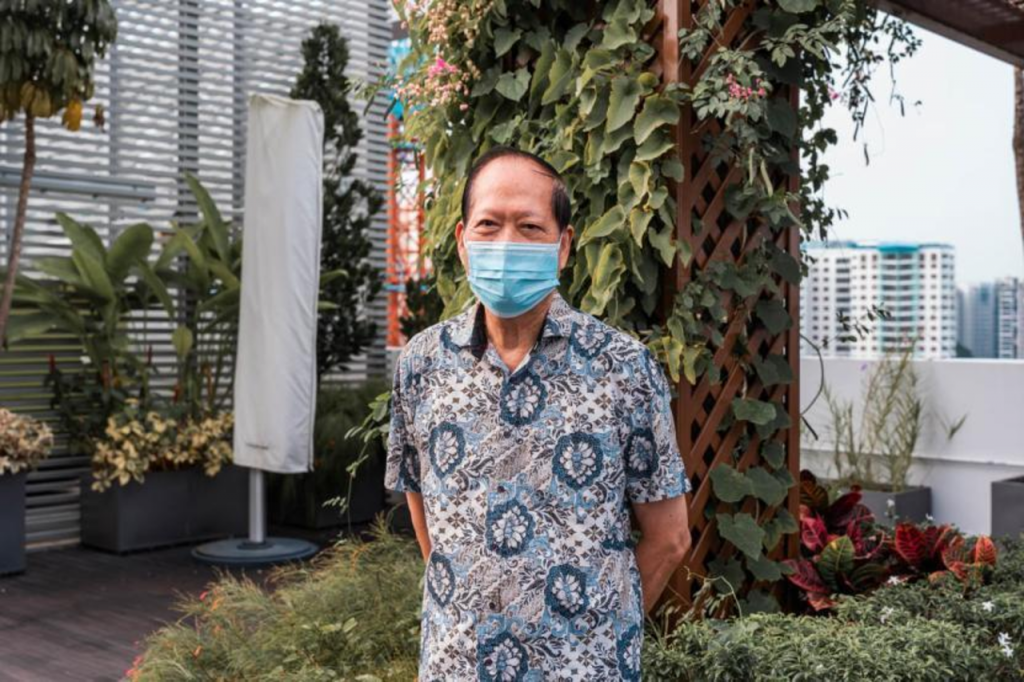
I’m 80 years old, which makes me older than some of the residents. I’ve been in nursing for 57 years.
I spent 37 years working in a hospital as an acute care nurse, and actually, I was due for retirement. The plan was to retire at 60. But I felt I wanted to stay active and continue to serve society, and I saw that there was a need for manpower in nursing homes. So I decided to switch to community care, and I joined Bright Hill Evergreen Home. I’ve now been here for 20 years.
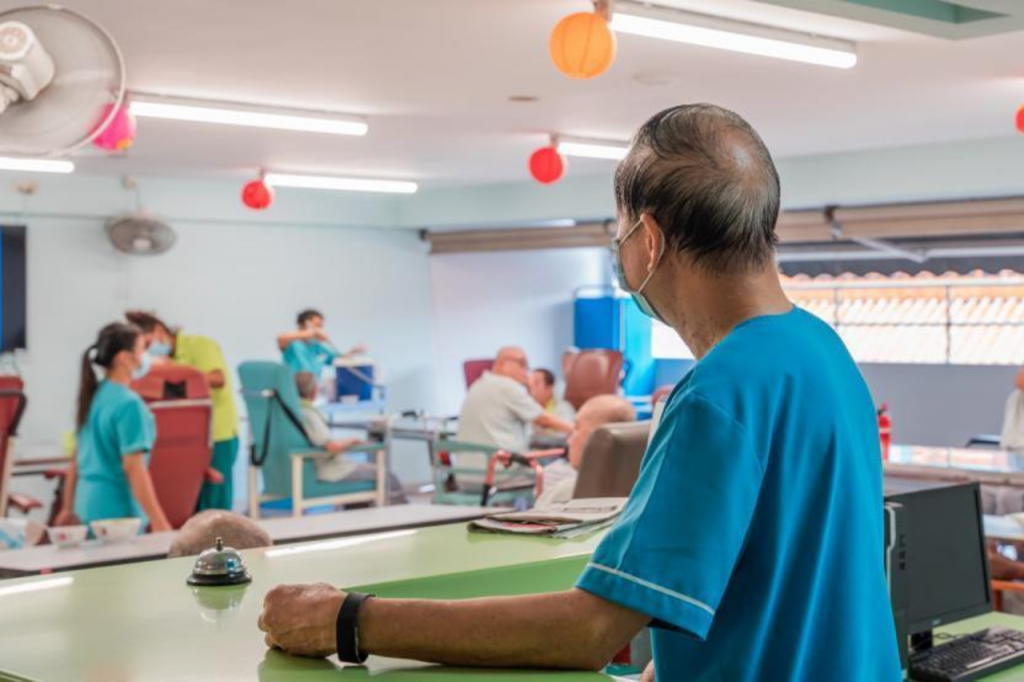
When I first began work, I actually had two job offers. One was for teaching, and the other was for nursing.
I opted for nursing, but I initially thought it was a ‘sissy’ job. There were very few male nurses, and my friends also couldn’t understand why I chose this. But I knew that it was a good profession, with very stable income and a clear career path, and the medical knowledge would be useful to learn. And over time, I realised that I was becoming more patient, better able to handle emergencies, and that I found the work meaningful too.
I guess some jobs just have no gender, whether it’s male or female. Like say for police, it was supposed to be for men, but now women can also join.
Still, it was a big change, moving into community care. As an operating theatre nurse, it’s more fast-paced. When the surgery is over, that’s it. You don’t really see the patient after that, you just finish the job and go home. Whereas here, the pace is slower; our job is to talk to the residents, communicate with them, spend time with them. You see them every day.
You have to understand their needs and make an effort to communicate, find out what they like and dislike, but the most important thing is to respect them as individuals, not just residents. Although I think being of a similar age to the residents also helps to build up trust. Sometimes I joke with them and say, you know, I’m older than you!
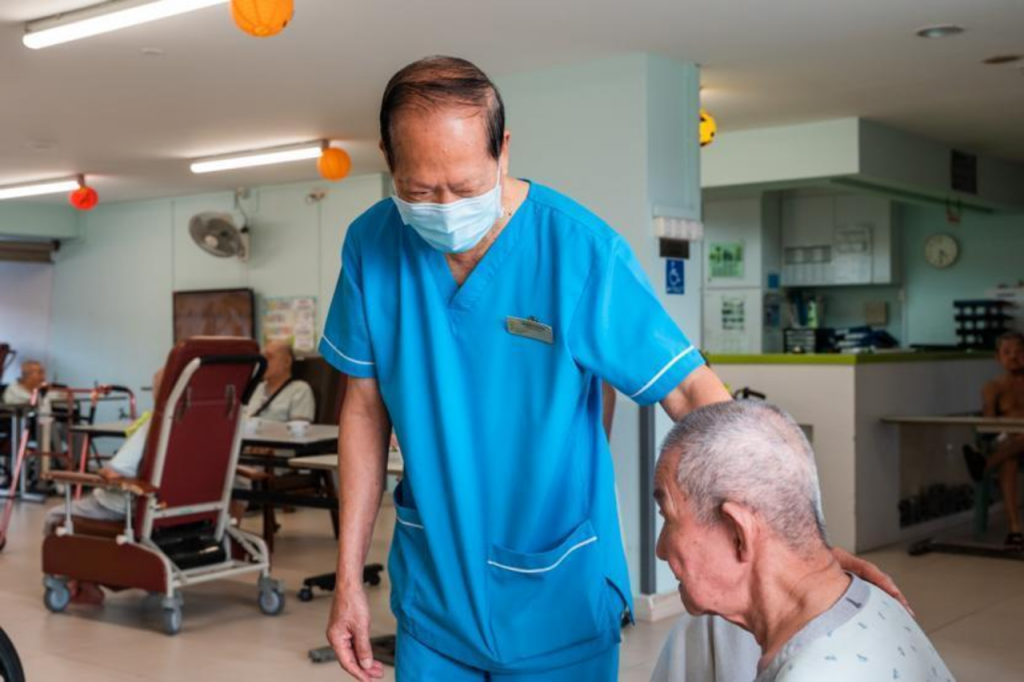
We have had difficult residents. I remember there was one man who transferred from another nursing home, and they informed us that he had some issues, like refusing to eat, and he could be very uncooperative with staff.
I tried to pay extra attention to him to find out what was wrong. For example, I noticed that he was getting cut from moving his wheelchair around, so we would keep a close eye on him. I also fed him personally, slowly and patiently, one spoon at a time. He improved a lot, and gained back a lot of the weight he lost. The man’s son noticed that his father was making a lot of progress, and I was very surprised when he nominated me for the President’s Award for Nurses.
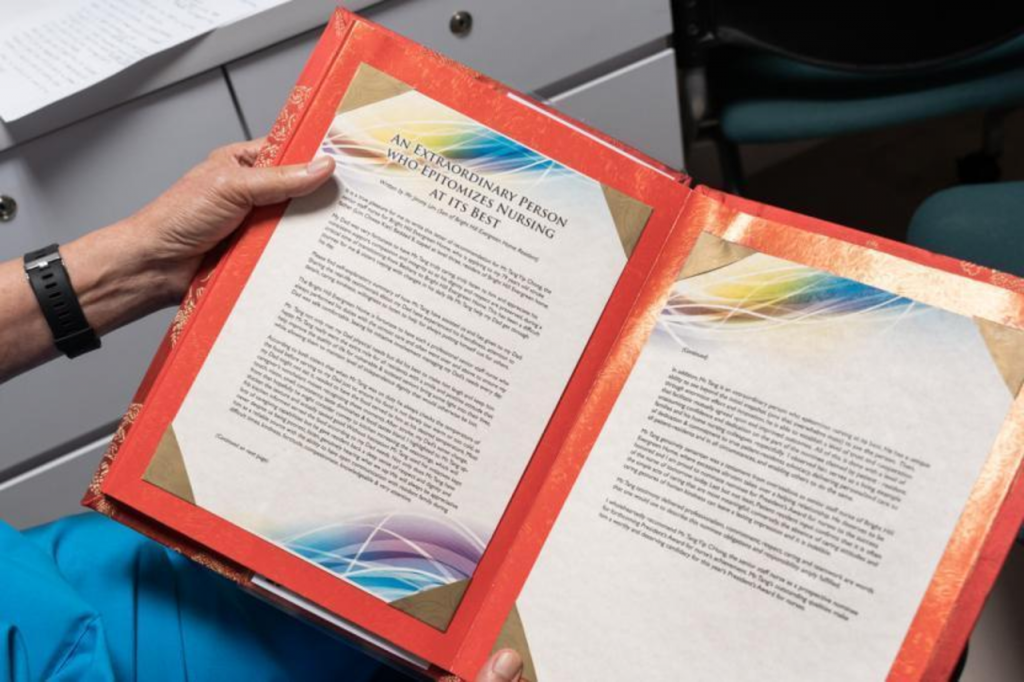
It’s important to be understanding and patient, although this can be hard. There are times when you wonder if they’ll ever listen to you. But if you go slowly and repeat yourself, or hold their hand, they’ll know that you genuinely care for them. It’s also important to unwind, and after work I exercise and spend time with my family.
I’ll continue working for as long as my health allows, although I might switch to part-time. Medical science and technology also change very fast, so I have to follow the trends and keep up. It doesn’t mean old cannot learn. Old is still gold. You just need an open mind and an open heart.
In Community Care, it’s not about how gifted we are, or what talents we have, but the care we have within. Sometimes, the calling we’re looking for has been in us all along.
Make caring your calling. Sign up for a Community Care career at www.borntocare.sg. #BornToCare
This story was sponsored by the Agency for Integrated Care.

